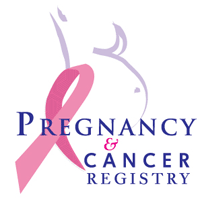 Finding out your pregnant can be one of the happiest times in your life. Couple that with a cancer diagnosis and suddenly you’re not only concerned about your health, but that of the new life you are busy growing. Cancer during pregnancy is rare, occurring in approximately one out of every 1,000 pregnancies, and breast cancer is the most common cancer diagnosed during pregnancy. Currently, little research is available to guide women and doctors during this uncertain time.
Finding out your pregnant can be one of the happiest times in your life. Couple that with a cancer diagnosis and suddenly you’re not only concerned about your health, but that of the new life you are busy growing. Cancer during pregnancy is rare, occurring in approximately one out of every 1,000 pregnancies, and breast cancer is the most common cancer diagnosed during pregnancy. Currently, little research is available to guide women and doctors during this uncertain time.
When making treatment decisions for cancer during pregnancy, the doctor considers the best treatment options for the mother and the possible risks to the baby. The type of treatment given depends on many factors including, gestational age of the baby; the type, location, size, and stage of the cancer; and the decisions of the expectant mother and family. Some cancer treatments can harm the fetus, especially during the first trimester; therefore, treatment may be delayed until the second or third trimesters. When cancer is diagnosed later in pregnancy, doctors may wait to start treatment until after the baby is born, or they may consider inducing labor early.
Unfortunately, the current medical literature cannot answer all the relevant questions for a woman facing a cancer diagnosis during pregnancy. Few oncologists or obstetricians treat more than 2 or 3 patients in this situation in an entire career. The only way to gain the necessary knowledge about cancer found and treated during pregnancy is to gather together experience from various hospitals into one single database. To the benefit of oncofertility, Dr. Elyce Cardonick, a Maternal Fetal Medicine Physician at Cooper University Health Care in New Jersey, is doing just that.
Dr. Cardonick has created a health registry, which collects information about the diagnosis, and treatment of cancer in pregnant women. According to Dr. Cardonick, the information collected is strictly confidential and will help study the effects of a newly diagnosed cancer and its treatment on a concurrent pregnancy. Additionally, the interaction of a pregnancy on the natural history of certain types of cancer will also be studied. Some women have even received chemotherapy during pregnancy and delivered healthy infants. Dr. Cardonick is also interested in including pregnant women with a history of cancer in a separate database. In both studies, the health of the women and their children are followed yearly in cooperation with the patient’s oncologist, pediatrician and obstetrician.
For more information about the pregnancy and cancer registry or to become a participant, please call (877) 635-4499 or visit www.cancerandpregnancy.com. To learn more about the role of OB/GYN in comprehensive cancer care, please read this previous blog.

